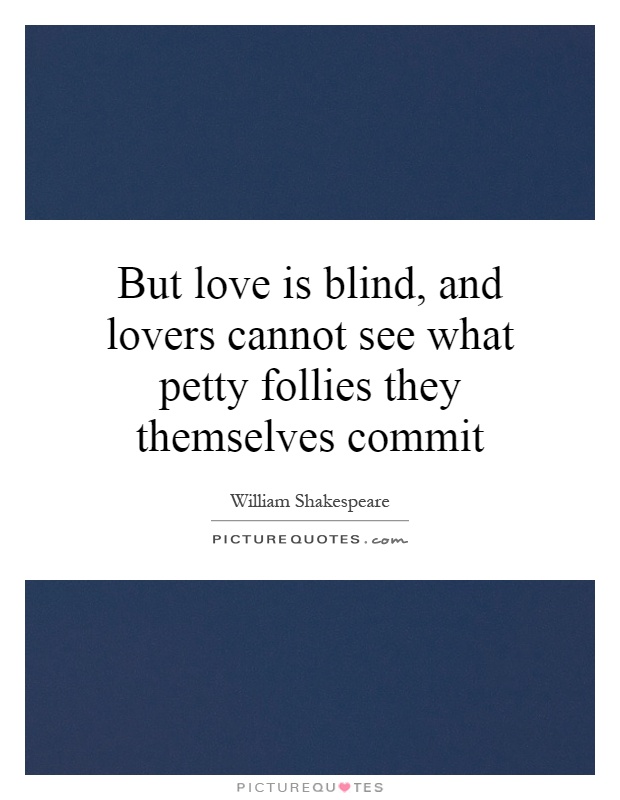But love is blind, and lovers cannot see what petty follies they themselves commit

But love is blind, and lovers cannot see what petty follies they themselves commit
In William Shakespeare's works, the theme of love and its complexities is a recurring motif that is explored in various ways. One of the most famous quotes related to love in Shakespeare's plays is "But love is blind, and lovers cannot see what petty follies they themselves commit." This quote, from the play "The Merchant of Venice," highlights the idea that love can often cloud one's judgment and lead them to overlook or excuse the faults and mistakes of their beloved.Throughout Shakespeare's plays, we see numerous examples of characters who are blinded by love and unable to see the flaws or shortcomings of their partners. In "Romeo and Juliet," for instance, the titular characters are so consumed by their love for each other that they are willing to defy their families and risk everything to be together. Despite the warnings and advice of others, Romeo and Juliet are unable to see the potential consequences of their actions because their love has blinded them to reason.
Similarly, in "Othello," the protagonist is manipulated by the villainous Iago into believing that his wife, Desdemona, has been unfaithful to him. Othello's love for Desdemona is so strong that he is unable to see the truth and instead becomes consumed by jealousy and rage. This ultimately leads to tragic consequences for both Othello and Desdemona, highlighting the destructive power of love when it is not tempered by reason.












 Friendship Quotes
Friendship Quotes Love Quotes
Love Quotes Life Quotes
Life Quotes Funny Quotes
Funny Quotes Motivational Quotes
Motivational Quotes Inspirational Quotes
Inspirational Quotes